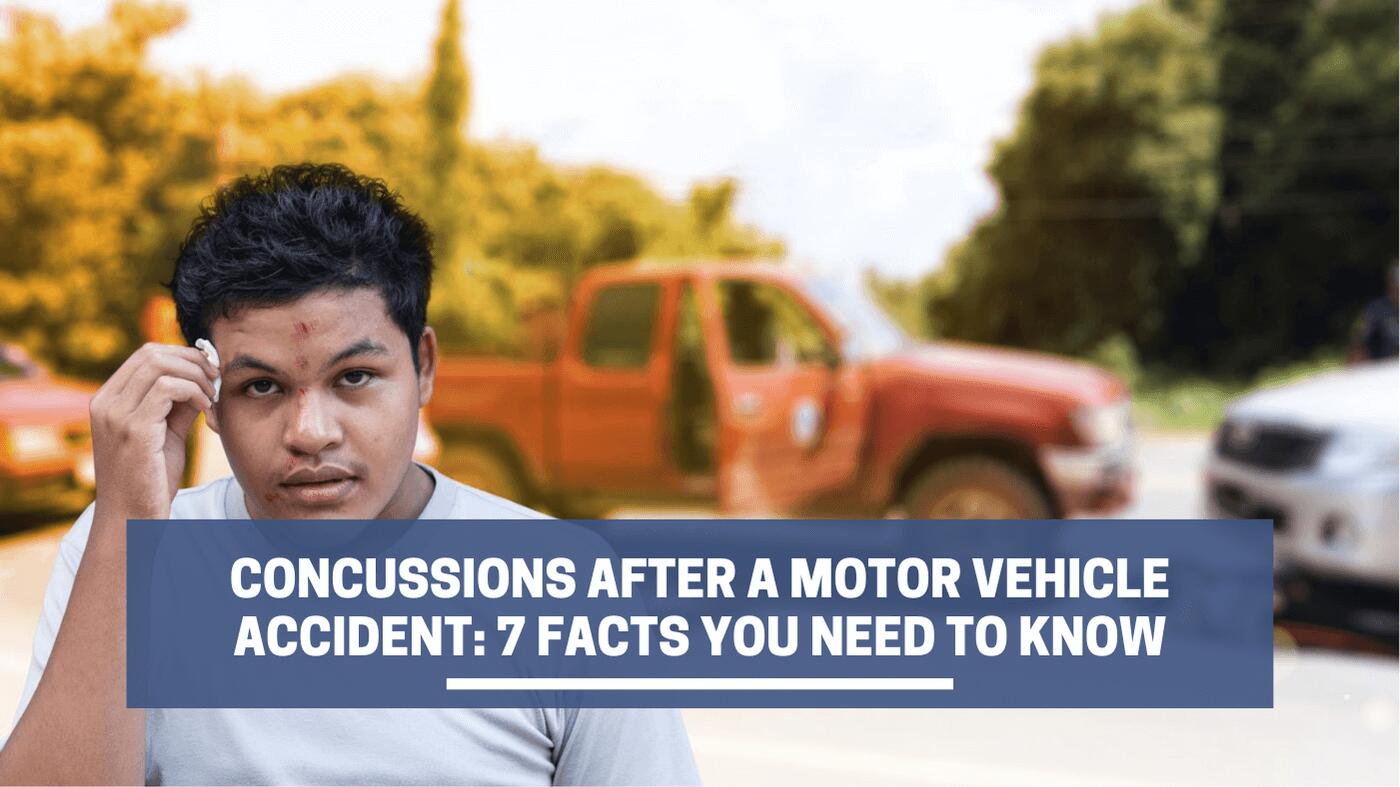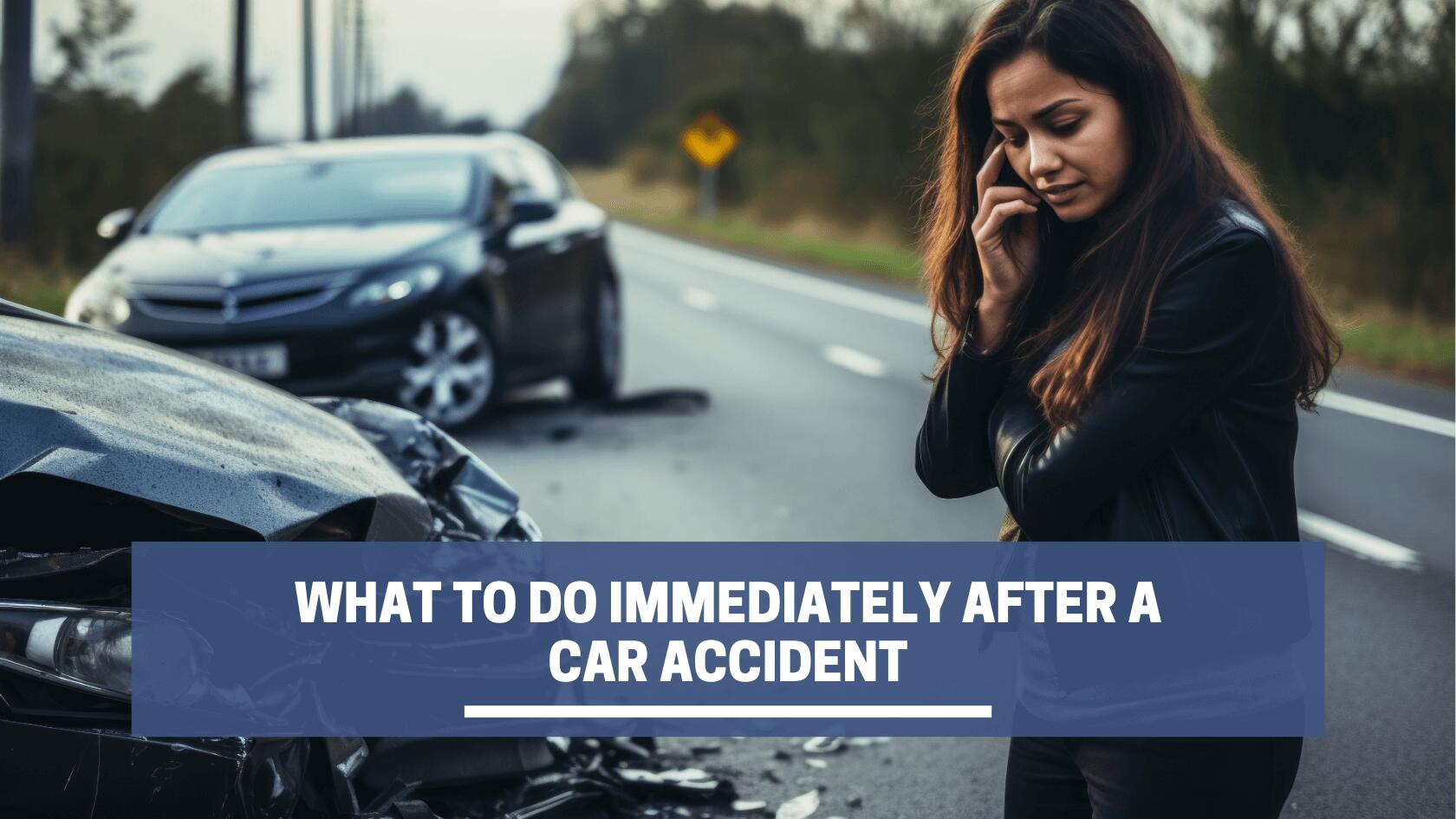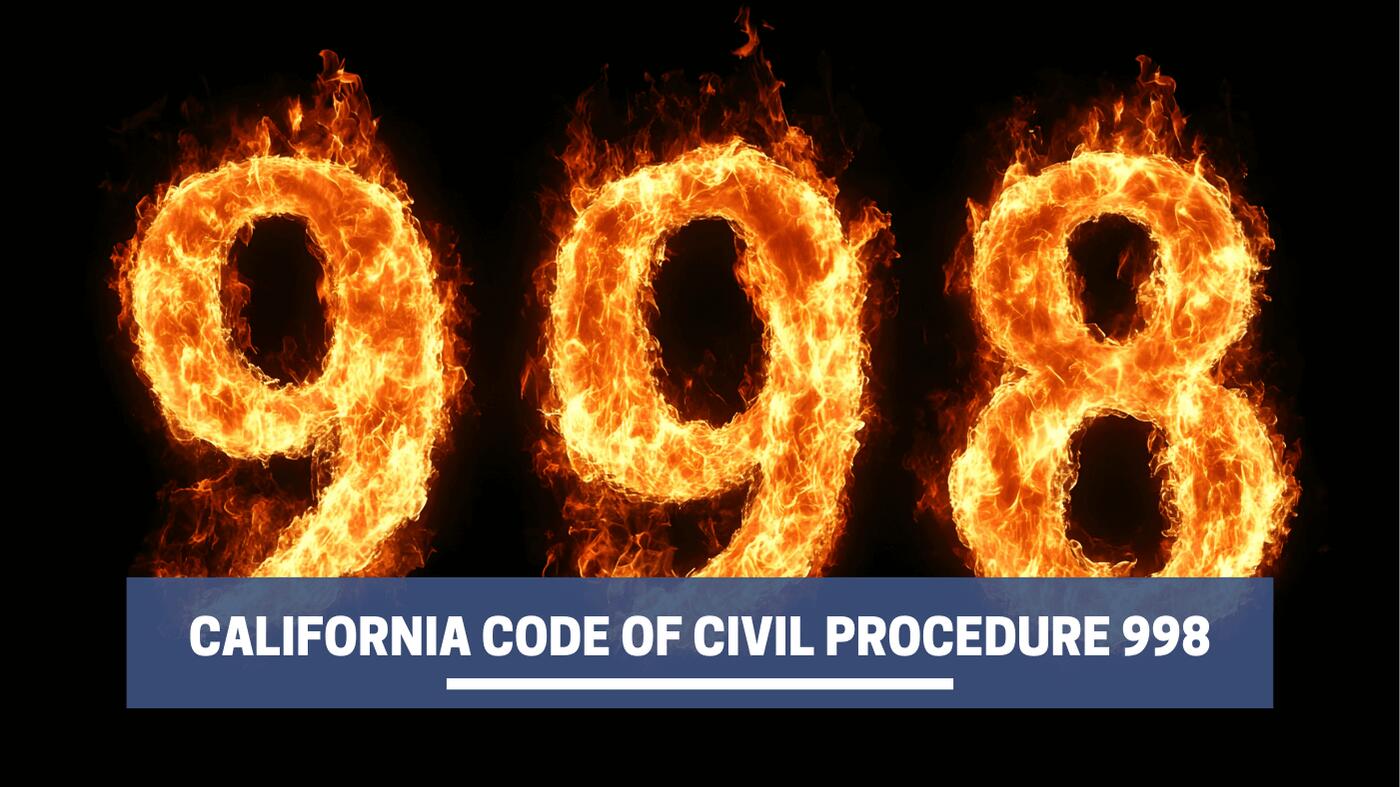Cuando un accidente automovilístico (MVA) occurs, one of the most common head injuries that drivers and passengers suffer is a concussion. Even though concussions are classified as mild traumatic brain injuries (mTBIs), they can affect daily life, impacting everything from memory to mood.
If you suffer a concussion from a motor vehicle accident, knowing the signs and when to get medical attention can help you protect your health and legal rights. Learn the essentials of concussion injuries after car accidents and how an experienced abogado de accidente de coche can help you seek compensation.
1. A Concussion Is a Serious Brain Injury, Even if It Seems Mild
A concussion occurs when a sudden force causes the brain to collide with the skull. This rapid movement can bruise brain tissue and interrupt normal brain function. Concussions often result from hits to the head or sharp motions like whiplash, causing the brain to collide with the skull. En los EE.UU., there may be as many as 1.4 a 3.8 million concussions un año.
Even when labeled mild, a concussion is still a brain injury. It impacts brain function, often causing dizziness, confusion, or headaches. Without proper rest and care, concussions after a motor vehicle crash can worsen. An untreated concussion may develop into a more serious traumatic brain injury (TBI) and cause lasting damage.
2. Certain Types of Motor Vehicle Accidents Are More Likely to Cause Concussions
Concussions are a common injury in car crashes. One study found that 33,191 people suffered concussions in crashes, o sobre 1 en 61 occupants in tow-away crashes, incluidos los pasajeros and drivers. sin embargo, not all crashes pose the same risk of injury—certain types are more likely to cause brain injuries than others:
- Head-on collisions. The sudden stop from a head-on collision can cause the head to jolt forward, leading to direct impact or sudden movement within the skull.
- Colisiones traseras. Often resulting in whiplash injuries, rear-end accidents can cause concussions even if there’s no direct impact to the head. The neck and head whip forward and backward quickly, shifting the brain inside the skull.
- Side-impact (T-Bone) collisions. A side collision pushes the body laterally, often leading to head impact against the window or other interior parts of the car.
- Rollover accidents. Rollover accidents carry the highest concussion risk of any crash type, con un 4.73% chance compared to 1.64% for other collisions. Multiple impacts in rollovers increase the likelihood of severe concussions or other head injuries.
- Sideswipe accidents. Although sideswipes are typically less severe, sudden lateral movements can still cause minor concussive injuries, especially if the head hits a side surface.
3. Signs of Concussion After a Car Accident Aren’t Always Immediate—Know What to Watch For
Concussion symptoms after a car accident don’t always appear right away. Unlike visible injuries, signs of a concussion can be delayed, with some showing up immediately and others hours or even days later. Here are some car accident concussion symptoms to watch for:
Immediate Signs:
- Headache or dizziness. Headaches may range from mild to intense, and dizziness can make balance difficult.
- Confusion or disorientation. Feeling “foggy” or mentally scattered can happen right after the impact, affecting focus and awareness.
- Nausea and vomiting. An upset stomach or nausea, with or without vomiting, may indicate brain injury.
Delayed Symptoms:
- Sensitivity to light or sound. Bright lights and loud sounds may become overwhelming, even if you were comfortable with them before.
- Memory and concentration issues. Problems recalling details or staying focused can develop as the brain processes the injury.
- cambios de humor. Irritability, tristeza, or mood swings might show up later, indicating possible brain trauma.
- Balance and vision problems. Blurred vision or unsteady balance may become noticeable after the initial impact.
4. Not All Concussions Are the Same: They Vary in Severity
Not all concussions are alike—severity can range from mild to severe based on symptoms and recovery time. In the past, doctors used different grading scales, like the Cantu, Colorado Medical Society (CMS), and American Academy of Neurology (AAN) to evaluate the injury’s seriousness.
Hoy, healthcare providers focus on individualized evaluations that consider each patient’s specific symptoms and recovery needs. Here’s an overview of these tests and what they measure:
Assessment Area | Tests/Assessments | Examples |
Symptom Tracking | Uses tools like the Post-Concussion Symptom Scale (PCSS) and self-reported logs to monitor changes. |
|
Cognitive Function | Assessed with the Immediate Post-Concussion Assessment and Cognitive Test (ImPACT), which measures memory, tiempo de reacción, and problem-solving. |
|
Physical Symptoms | Evaluates balance and coordination through the Balance Error Scoring System (BESS) and visual processing with the King-Devick Test. |
|
Emotional Changes | Tracks mood shifts, ansiedad, irritability, and depression using the Acute Concussion Evaluation (ACE) tool and behavioral observation. |
|
Response to Activity | Monitored through stepwise protocols like the Gradual Return-to-Activity process to evaluate the impact of physical and mental exertion. |
|
Vision and Reflexes | Assessed using pupil response tests and tools like the Cleveland Clinic’s C3 Logix app, which evaluates coordination, vision tracking, and reflexes. |
|
5. Concussions Can Lead to Long-Term Health Issues
A car crash resulting in a head injury or concussion can have lasting effects, even after initial symptoms fade. Complications like post-concussive syndrome (PCS) may lead to memory problems, trouble concentrating, or slowed thinking, making work and daily routines difficult.
Emotional changes like anxiety or irritability may strain relationships, while persistent headaches or light sensitivity can disrupt tasks like using a computer. These issues can affect routines, hobbies, and social interactions, leaving you feeling isolated.
If someone else caused the crash, you may be entitled to compensation for medical bills, la pérdida de ingresos, and emotional impacts.
6. Getting Medical Attention Right Away Is Critical
A concussion after a car accident may go unnoticed, especially if symptoms take time to develop. Seek immediate medical care to ensure proper evaluation and treatment.
Your doctor can perform neurological tests or imaging scans to evaluate brain function and check for complications like bleeding or swelling. If a concussion is confirmed, they may recommend follow-up care with specialists like neurologists or brain injury experts to track your progress and develop a treatment plan, including rest and gradual reintroduction to activity.
Medical evaluations also create detailed records linking your injury directly to the crash. These records establish proof of what caused your concussion, which can strengthen your case for compensation for medical costs and other accident-related damages.
7. You Have Legal Options After a Concussion from an Accident
Car accident victims in California have the right to seek compensation after a crash. If a negligent driver caused the accident, you can file a claim with their insurer to cover the financial and emotional impact. Your settlement can include compensation for:
- Costs for emergency room visits, imaging, and follow-up care.
- Wages lost while recovering or from reduced work capacity.
- Physical pain, estrés emocional, and changes to your quality of life.
- Expenses for rehabilitation, terapia, or ongoing support.
Understanding your legal rights after a crash can be challenging, especially when dealing with the effects of a head injury. UNA abogado especializado en accidentes automovilísticos can guide you through the process, gathering evidence like medical records and expert testimony to win the compensation you deserve.
Protect Your Health and Legal Rights After a Concussion
Concussions from car accidents can leave lasting impacts on your health and daily life. Knowing the symptoms of a concussion and seeking immediate medical attention can protect your recovery and prevent complications. If your injury resulted from another driver’s negligence, consult a qualified attorney to explore your legal options, pursue accountability, and recover a settlement for your damages.
Preguntas frecuentes
Recovery usually occurs within about 2 a 3 semanas, but symptoms can persist for months in some cases, especially with post-concussion syndrome.
Sí. Sudden jolts, like whiplash from a car accident, can cause the brain to move within the skull, resulting in a concussion without direct head impact.
While most concussions resolve, some individuals experience long-term issues like memory problems, mood changes, and concentration difficulties, especially if they have PCS.
Buscar atención médica inmediata, follow up with your doctor for ongoing symptoms, and consult a lawyer to understand your legal rights.











